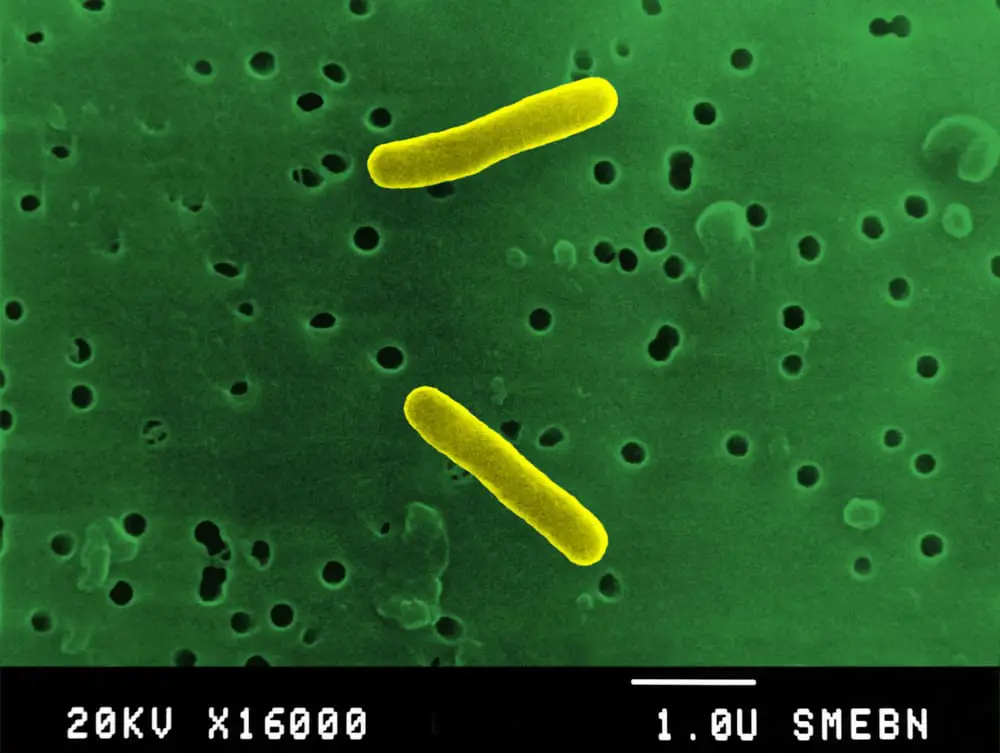We can all remember licking the batter spoon for cakes and other sweet treats when we were kids. Even though there were some iffy products in the batter, such as raw eggs, it was generally okay to consume small amounts. The same applies to raw cookie dough. Some say eating raw cookie dough is okay, while others advocate against it. So, is it okay to eat raw cookie dough?
Raw cookie dough contains ingredients such as raw eggs and flour, and both of these ingredients can pose risks to human health. But if pasteurized eggs and raw flour that has not been recalled are used, eating raw cookie dough can be considered safe.
In this guide, we are going to take a closer look at a very common and often controversial pastime when it comes to baking. Eating raw cookie dough is always going to divide opinions, but there are some safer alternatives to take if you enjoy eating this product. Read on to find out more about raw cookie dough.
What Happens When You Eat Raw Cookie Dough?

First and foremost, the biggest concern with raw cookie dough is eggs. The raw eggs in cookie dough can be contaminated with Salmonella.
Most doughs and batters contain raw eggs, which can be contaminated with a harmful germ called Salmonella, an illness-causing bacteria and common cause of food poisoning in the U.S.
The symptoms of Salmonella infection include:
- Diarrhea
- Fever
- Abdominal cramps
- Vomiting
If you do get Salmonella poisoning from eating raw cookie dough, symptoms can appear anywhere between 12 and 72 hours later. What’s more, these symptoms can last for four to seven days.
In most cases, people get better without treatment. But food poisoning can also become severe, even life-threatening. Certain people are at greater risk for this, including kids, the elderly, and people who are pregnant or have a weakened immune system.
To prevent getting sick from eating contaminated eggs, the FDA recommends keeping eggs refrigerated and cooking them until the yolks are firm. For that matter, thoroughly cook any foods that contain eggs.
The bottom line: It’s unsafe to consume raw doughs and batters that contain eggs since the raw egg could be contaminated with Salmonella. Additionally, the uncooked flour in cookie dough can be contaminated with E. coli.
If you’re thinking that choosing an eggless cookie dough recipe makes it safer, think again. It’s not just raw eggs that come with a food poisoning risk. Uncooked flour can contain illness-causing bacteria, too.
Germs like E. coli can contaminate grain either while it’s growing in a field or during one of the many food-manufacturing steps needed to turn it into the flour we buy off the shelf.
As a foodborne illness, infection with E. coli causes the following symptoms:
- Stomach cramps
- Diarrhea (usually bloody)
- Vomiting
These symptoms can appear anywhere from three to four days later. And while most people recover within a week without treatment, some may develop a serious type of kidney failure called hemolytic uremic syndrome (HUS). Certain people are at greater risk for this, including kids, the elderly, and people who are pregnant or have a weakened immune system.
Similar to raw eggs, thoroughly cooking foods that contain flour removes the risk of getting sick from any illness-causing bacteria that may be present. Also, it’s important to note: even flour labeled as “bleached” can still contain harmful germs.
The bottom line: While you may not think of flour as a “raw” ingredient, it still needs to be cooked before being consumed. Eating uncooked flour increases your risk of developing a foodborne illness.
Can You Eat Packaged Raw Dough?
Homemade dough and batter aside, your favorite commercial cookie dough products must be safe to eat, right? Well, it depends.
Manufacturers of premade cookie dough products do take steps to make these raw ingredients safer, including heat-treating flour and pasteurizing eggs.
However, while some manufacturers add “safe to eat raw” labels, others add disclaimers on ready-to-bake cookie packaging that discourages consuming raw dough. And you might also not find any safety information whatsoever on some products, such as cookie dough ice creams or snackable cookie dough bites.
Before eating premade cookie dough, the CDC recommends reading the product’s packaging to ensure that it’s labeled as safe to consume raw. Store-bought cookie dough is best (more on this below).
Salmonella Cookie Dough Deaths
The FDA estimates that every year contaminated eggs cause 79,000 food-borne illnesses and 30 deaths in the United States. With that in mind, the CDC warns against eating any raw cookie dough.
Can You Get Worms From Cookie Dough?
Raw animal products are a concern when it comes to intestinal worms, but raw cookie dough likely doesn’t have any. Eating raw cookie dough can result in gastrointestinal illness that may even lead to hospitalization in extreme cases. However, the potential illnesses are not generally caused by intestinal parasites such as worms, which are far more common in meats.
Can You Eat Frozen Raw Cookie Dough?
No, homemade frozen cookie dough is not safe to eat. Heat is the only way to kill bacteria and germs successfully. Freezing can help you save your dough for a few months, but you’ll have to bake it after defrosting it. Freezing doesn’t kill bacteria, but the heat does.
If you freeze raw cookie dough made from contaminated flour, bacteria will still be harmful. Once the food thaws, bacteria will get moisture, which helps them stay alive.
What If A Pregnant Woman Eats Raw Dough?

Generally speaking, it is not a good idea for pregnant women to eat raw cookie dough. But you shouldn’t eat raw flour or eggs in any form when you’re pregnant.
It may seem harmless — especially compared to other off-limits pregnancy foods like sushi and undercooked meat — but raw flour can contain bacteria like E. coli, which can make both you and the unborn infant sick.
As discussed, flour is obtained from a grain that comes directly from a field, and it isn’t treated to kill bacteria. What’s more, typical pathogen-killing steps like baking, boiling, heating, and frying aren’t taken before the flour is packaged.
So if there are bacteria in the raw flour, it’s still going to be there when you handle it.
That means eating raw cookie dough and batter for cakes, pancakes, pizza, and other treats isn’t safe — especially during pregnancy.
Is There A Way To Safely Eat Raw Dough?
When considering making ready-to-eat cookie dough, the flour that is used in the recipe must be commercially processed, heat-treated flour. The reason this is so important is that these processors have undergone rigorous validation studies to ensure that their processing parameters and controls are sufficient to eliminate or reduce biological pathogens to a safe and acceptable level.
Additionally, these commercial manufacturers have programs in place to ensure that the processing parameters are being followed, as well as maintaining critical equipment to ensure the process is under control and being followed.
While researching this guide, I have found that there are articles and recommendations online which suggest that one can make heat-treated flours. Food safety experts strongly advise against the do-it-yourself (DIY) methods, as there is no guarantee that the heat treating process can be properly controlled and eliminate contaminants.
Another reason the recommendations found online may not be valid is that the time and temperature required to kill pathogens can vary by food product. For example, the amount of time and temperature needed to kill pathogens in chicken vs. beef varies based on the food matrix.
The characteristics of a food, such as water activity, pH, acidity, fat content, protein content, and more, can affect the time and temperature needed to kill pathogens.
The subsequent ingredients used in the cookie dough must also be ready-to-eat. If eggs are purchased from a grocery store, they may be pasteurized. However, some states allow for the sale of unpasteurized eggs.
Using unpasteurized eggs is never safe, as these eggs have not been processed to destroy harmful bacteria.
However, eggs that have been pasteurized have been rapidly heated and held at a minimum required temperature for a specified time to destroy bacteria and no further cooking is required. It is vitally important to ensure that only pasteurized eggs are used in these recipes.
Is Cookie Dough In Ice Cream Raw?

Most cookie dough in ice cream is safe to eat because the flour has been heat-treated and the eggs pasteurized, thus protecting you from such foodborne illnesses as E. coli and salmonella that could be found in homemade cookie dough. The same goes for slice-and-bake and prepackaged cookie doughs.
Ice cream cookie dough tends to contain no leavening (it’s unnecessary if you’re eating the dough straight), the flour is given a heat treatment to make it safe to eat straight, and the eggs are, of course, pasteurized.
So in essence, the store-bought cookie doughs, and those found in ice cream are the safest options.
